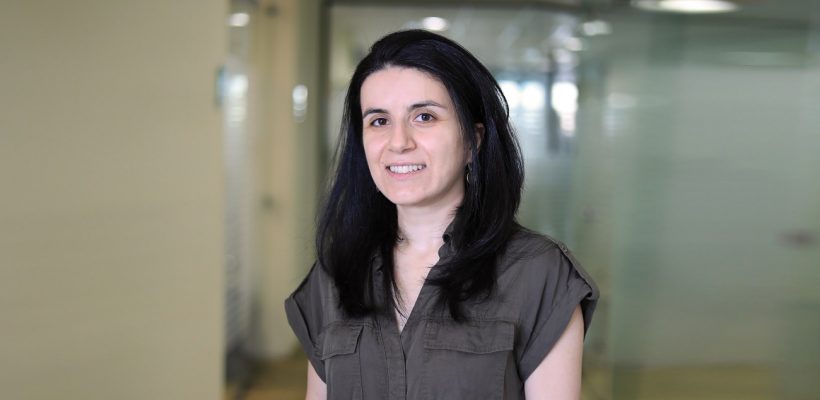
Louisa Harutyunyan Appointed as CIS Program Chair
3 min readThe American University of Armenia (AUA) is pleased to announce the appointment of Dr. Louisa Harutyunyan as program chair of the Master of Science in Computer and Information Science (MS CIS) program of the Akian College of Science and Engineering (CSE), effective January 2020.
Dr. Harutyunyan joined AUA in 2016 as adjunct lecturer teaching several courses, such as Introduction to Algorithms, Data Structures, and Discrete Mathematics. Her research interests include mobile and distributed computing, designing algorithms for mobile ad-hoc networks, sensor networks, and approximation algorithms for routing in distributed networks.
Dr. Harutyunyan holds a PhD in computer science from Concordia University in Montréal (2014). Her doctoral research focuses on designing algorithms for efficient data dissemination in wireless networks. Subsequently, she was a postdoctoral researcher from 2014 to 2016 at LIP6, Sorbonne Universités, Université Pierre et Marie Curie-Paris 6, before joining AUA.
As Dr. Harutyunyan stepped into her new role as CIS program chair, we interviewed her to learn more about her incentives for career choice, motivation to move to Armenia, and more.
What has influenced your choice of profession? Tell us about your student years and incentives for your career choice.
I would say that my choice of profession has mostly been influenced by my parents. I grew up in a family of professors, where the academic world was constantly present in my life. Although, I came to the decision of pursuing a career in academia later in my studies. Initially, when I was applying for a bachelor’s degree, I had a difficult time choosing a major because I was interested in many different things. In the end, it was my love for animation that made me pursue Computer Science. I was interested in computer animation. However, after my first course in algorithms I started to work on a research project with my professor and I became fascinated with the field of networks and algorithms. So, I completely forgot about computer animation and decided to go to graduate school to continue to do research in networks. A couple of years into grad school I already knew that I wanted to pursue a career in academia. I found that sharing your knowledge with others and trying to understand one another’s perspectives to learn new things can be such a joyous experience.
You lived most of your life outside Armenia. What brought you here to Yerevan and AUA?
I was interested in what the youth in Armenia were like and what their future aspirations were. I got glimpses of that through the social media. At the same time, AUA had started the BS CS [Bachelor of Science in Computer Science] program and that was an exciting prospect for Armenian academia. So, I came to Yerevan and AUA in the hope of discovering what our youth and their prospects are like. I also try to have my own small contribution in the grand scheme of things.
Tell us about your experience as a member of the AUA faculty. How do you like it?
My experience at AUA has been positive. I like the work environment at AUA and the open collaboration with colleagues working as a team. From the beginning, everyone has been very welcoming and supportive, for which I am grateful.
What do you think of today’s Armenian youth, judging from what you see at AUA?
The youth that I have seen thus far while teaching at AUA are very open, not afraid to voice their questions and opinions. With perseverance and hard work, I believe they can contribute a lot to the future of Armenia. Although the skill set and hard work ethic must be taught as early as in school years, unfortunately, the school system in Armenia is largely lacking in this regard.
What is your perspective regarding the future of Armenian academia?
As to the future of Armenian academia, I am afraid that I currently do not have a positive outlook. In the Armenian reality, the government, the industry and the society at large perceive universities as teaching institutions only, while one of the main functions of a university is to act as a hub for continuously providing knowledge and technology, as well as pushing the boundaries of current research to aid society in its development. In this regard, AUA is heading in the right direction. However, my impression is not the same of other universities in Armenia, which are not provided with the means to thrive and reflect their success onto society. So, there is a lot of work that must be done in this regard.
